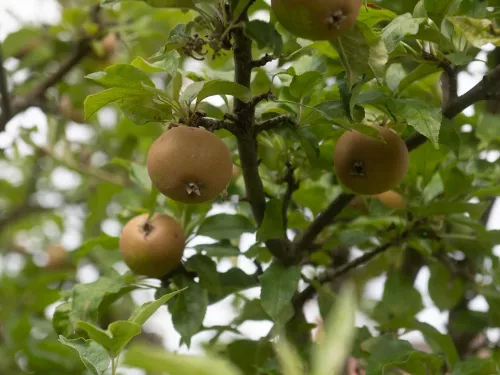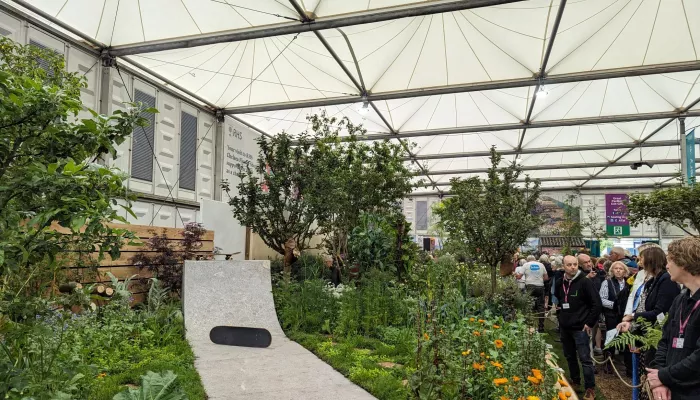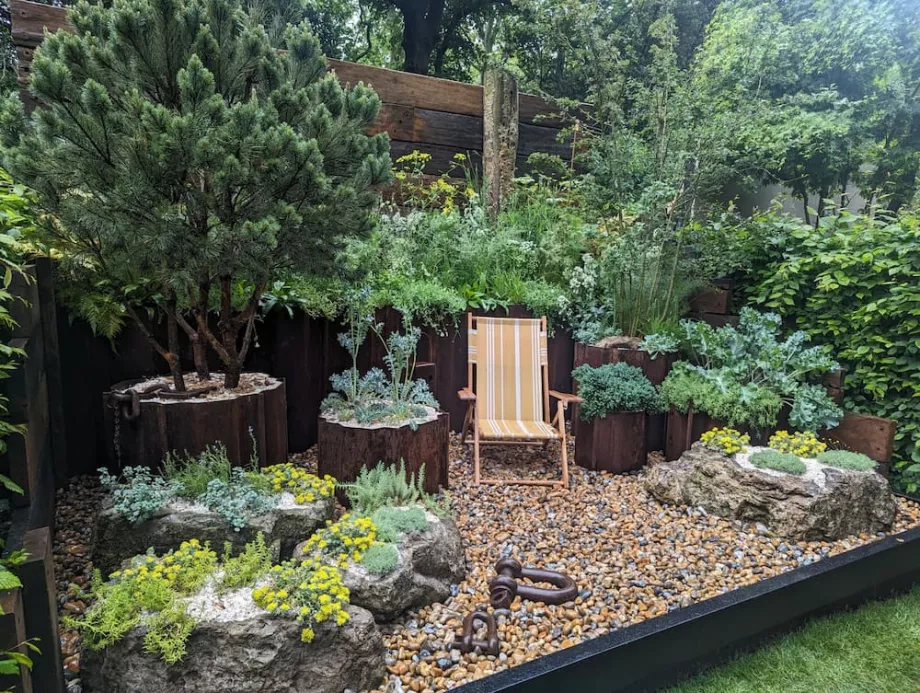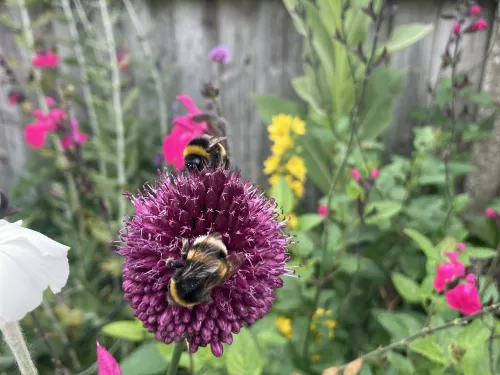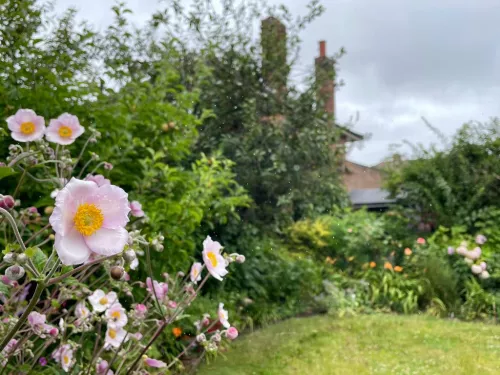I was delighted to chat to designer Chris Hull about his collaboration.
Mental health, wellbeing and the restorative power of nature featured in several gardens. This was reflected in the charity partnerships that were inspiring the designs. From the award winning Muscular Dystrophy UK, Forest Bathing Garden, with natural woodland as a clear inspiration. To the St James Piccadilly Garden ‘Imagine the World to be Different’ which resembled wildlife and plants reclaiming an urban churchyard with sculptural counselling pod within the walls – to emphasise this connection of nature and healing.
Climate change and particularly water – featured the most heavily, with garden designs dedicated to managing water resource use, either reflecting the need to store and conserve limited water, or manage sudden downpours with stream features that could ebb and flow. This really highlighted the precarious nature of not only our gardens but the wider landscapes we live in, as our changing climate and more extreme weather events become reality.
My conclusions: climate change and biodiversity are right up there on the agenda for the top gardeners (at least those showing at Chelsea). Not only building resilience in their garden designs, but understanding that each and every garden must also play its part in supporting nature recovery.
For more garden inspiration closer to home, visit one of our Wild About Garden’s Open gardens from Gravesend, Maidstone, Goodneston and Faversham and talk to our Wild About Gardens volunteers and other experts on creating beautiful, resilient, wildlife friendly gardens.
Kent’s unique habitats were also represented at Chelsea 2024 with a garden called Changing Tides Garden, based on the vegetative shingle beaches that feature along much of our coastline and a fantastic display of Kent's wildflowers through Kent Wildflower Seeds stand in the main Marquee.
